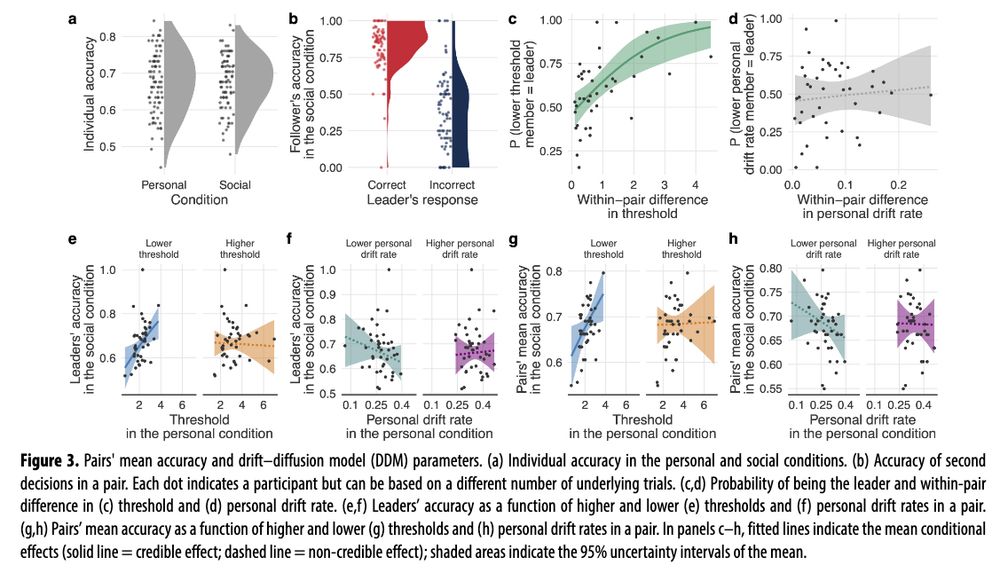And great thanks to the co-authores, Alan Tump (@alantump.bsky.social) & Ralf Kurvers (@ralfkurvers.bsky.social)!
And great thanks to the co-authores, Alan Tump (@alantump.bsky.social) & Ralf Kurvers (@ralfkurvers.bsky.social)!
⌛Our study suggests the importance of going beyond the paradigm of passively using social info and focusing on the timing and speed of judgement in group decision-making.
🔗 doi.org/10.1098/rspb...

⌛Our study suggests the importance of going beyond the paradigm of passively using social info and focusing on the timing and speed of judgement in group decision-making.
🔗 doi.org/10.1098/rspb...
💡🐢Slow people relied less on the fast ones.
💡🐇Fast people relied more on the slower ones and became a bit more cautious.
Our experiment and simulations show that pairs performed as well as individuals. These results suggest flexible use of social-info.

💡🐢Slow people relied less on the fast ones.
💡🐇Fast people relied more on the slower ones and became a bit more cautious.
Our experiment and simulations show that pairs performed as well as individuals. These results suggest flexible use of social-info.
🐇Fast (but less accurate) people often decided first and set the tone.
🐢Slower (but more accurate) people followed.
Social accuracy depended on the faster person, not the better-informed one. So, did the pair's accuracy get worse ...?
👉But here's the twist:


🐇Fast (but less accurate) people often decided first and set the tone.
🐢Slower (but more accurate) people followed.
Social accuracy depended on the faster person, not the better-informed one. So, did the pair's accuracy get worse ...?
👉But here's the twist:
📈We used drift–diffusion models to capture how competent and cautious each person was and how much they relied on their partner's social info.

📈We used drift–diffusion models to capture how competent and cautious each person was and how much they relied on their partner's social info.
👉 What happens when people with different decision-making styles work together and can use social information from others in real time?
👉 What happens when people with different decision-making styles work together and can use social information from others in real time?

